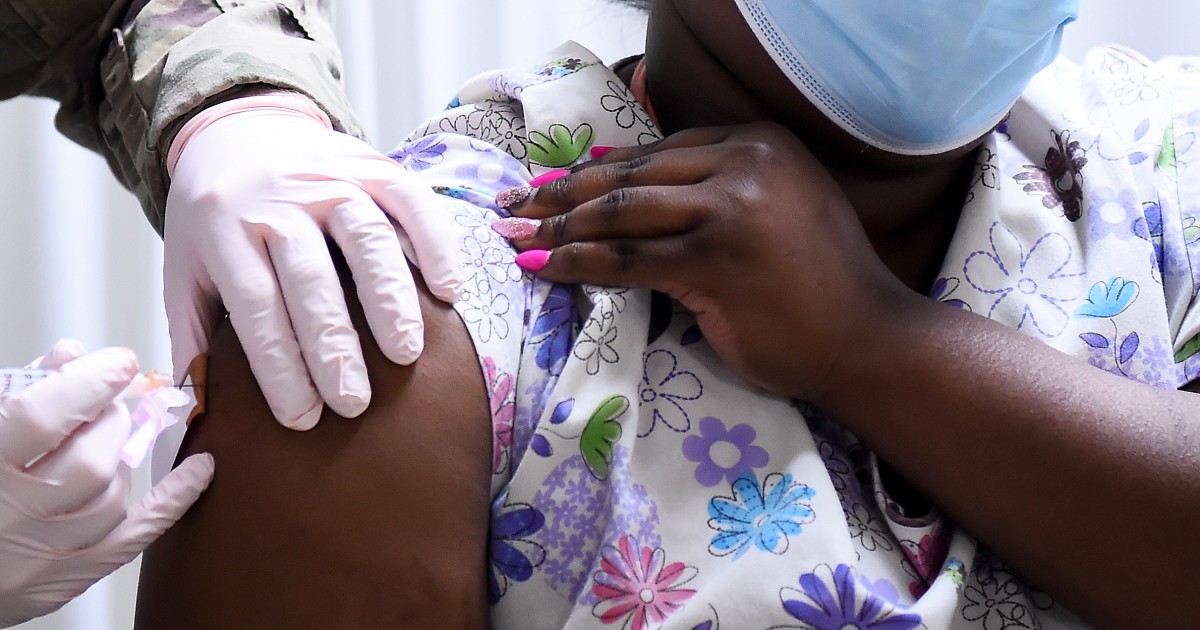
The Food and Drug Administration on Monday greenlighted updated Covid boosters from Pfizer and Moderna. The shots, which are formulated to target the XBB.1.5 subvariant, are expected to be available later this week, after the Centers for Disease Control and Prevention signs off on them.
Anyone age 5 and older can get an updated booster shot from either Pfizer-BioNTech or Moderna, regardless of whether they were previously vaccinated, the FDA said in a statement. People who have been vaccinated should wait at least two months after their last Covid shot before getting the new booster.
Novavax, which also makes a Covid vaccine, said on Monday that its updated booster was still being reviewed by the FDA. Unlike Pfizer and Moderna, Novavax’s shot doesn’t use mRNA technology.
The boosters come as Covid cases are rising in the U.S., driven by a slew of subvariants. Officials hope that the boosters can blunt a possible spike in winter illness.
Here’s what to know about the new shots.
How well do these boosters work?
In June, the FDA asked drugmakers to formulate the fall boosters to target the then-dominant XBB.1.5 subvariant.
While that particular strain is no longer as prevalent — accounting only for about 3% of new Covid cases the week ending Sept. 2, according to the CDC — other strains in circulation are still closely related to XBB.1.5.
One of the predominant strains is called EG.5, which accounts for about 22% of new cases. Another, FL.1.5.1, accounts for about 15% of new cases. Both are members of the XBB subvariant family. Pfizer, Moderna and Novavax have said that their boosters work against EG.5, and Moderna said its booster also works against FL.1.51.
Dr. Eric Topol, executive vice president of Scripps Research in La Jolla, California, said he is “not concerned” about vaccine effectiveness, saying that the vaccines developed so far have consistently shown to provide protection against severe disease, hospitalization and death.
“The new booster will certainly ameliorate protection,” Topol said.
Experts are also keeping a close eye on BA.2.86 — dubbed “Pirola” by some on social media — an omicron subvariant that initially caused alarm because of its high number of mutations. Emerging lab data, however, suggests it may not be immune-evasive or transmissible as initially feared.
Last Thursday, Moderna and Pfizer both stated that their boosters appeared to work against BA.2.86, saying that the shots triggered a strong antibody response against the variant.
Dr. Dan Barouch, director of the Center for Virology and Vaccine Research at Beth Israel Deaconess Medical Center, said recent lab studies have shown people who had been infected by an XBB omicron subvariant within the last six months generated antibodies against EG.5, BA.2.86 and other omicron subvariants, suggesting the updated booster will also provide protection against these strains.
“It is likely that the XBB.1.5 monovalent vaccines will raise antibodies against all the circulating variants,” Barouch said.
When should I get the new booster?
A CDC advisory committee is scheduled to meet Tuesday to vote on recommendations for who should get the booster. Soon after that, CDC Director Dr. Mandy Cohen is expected to sign off on those recommendations, and boosting can begin.
For people who haven’t gotten a booster since last fall and haven’t had a recent Covid infection, experts say they should get their booster as soon as possible.
But with rising cases, many people are sick now with Covid or have recently recovered from an infection. According to a CDC official, people with recent infections may wait about 90 days from their illness before getting the booster.
People who are unvaccinated can also get the booster, and do not have to complete a multidose primary series beforehand.
How much will it cost?
For the first time since the vaccines became available, the federal government will not cover the cost of the shots.
Pfizer and Moderna have said they are pricing each vaccine dose at over $100.
Jennifer Kates, director of the Global Health & HIV Policy Program at the nonprofit KFF, said most people with private and public health insurance should continue to pay nothing out of pocket for the boosters — as long as they stick with an in-network provider.
“If you go out of network, you might have some cost, just like with any other service,” she said.
People who don’t have insurance — an estimated 30 million in the U.S. — should be able to get a booster for free at community health centers. Additionally, the Biden administration is also rolling out a “bridge” program that will offer uninsured people access to free boosters at least through the end of 2024. Those who don’t know or don’t have access to these resources may have to pay out of pocket, she said.
How many boosters will we need?
Most healthy people will likely only need one booster until fall 2024, said Dr. Ofer Levy, the director of the Precision Vaccines Program at Boston Children’s Hospital and a member of the FDA’s advisory committee.
Dr. Paul Offit, a vaccine expert at Children’s Hospital of Philadelphia and another member of the FDA’s advisory committee, said it’s possible people at high risk for severe disease such as older adults or who are immunocompromised may be advised to get an additional dose in a few months.
“All of those people share one thing in common: They don’t make very good immune responses,” he said.
What are the side effects?
Levy said the side effects of updated boosters should be the same as the previous iterations of the shots.
Common side effects include headache, chills, fever, nausea and pain or swelling at the injection site, according to the CDC.
Pfizer and Moderna’s vaccines have been associated with a small but increased risk of myocarditis, the inflammation of the heart muscle, mostly in young men. Most people make a full recovery, and early studies suggest incidences of myocarditis are highest following the second dose of a primary series.
Still, Pfizer and Moderna are currently running trials to track health issues — if any — in the years following a diagnosis of vaccine-associated heart problems.
Follow NBC HEALTH on Twitter & Facebook.

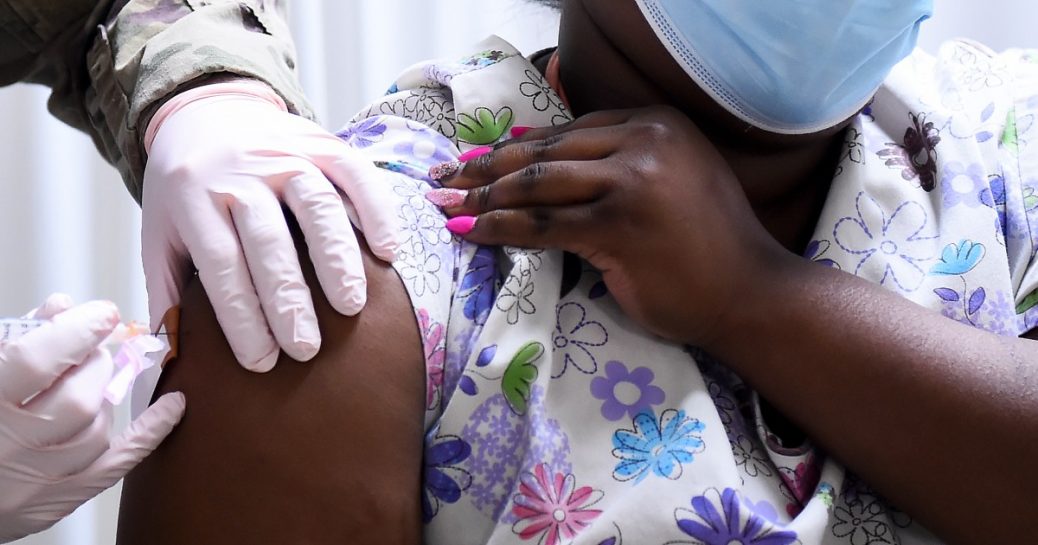

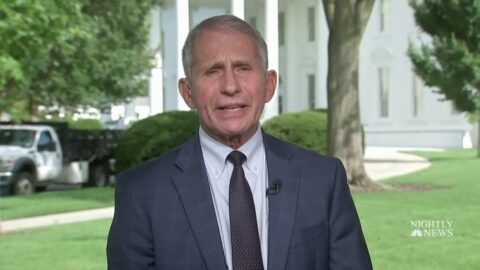
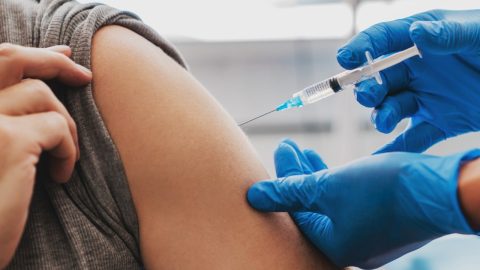
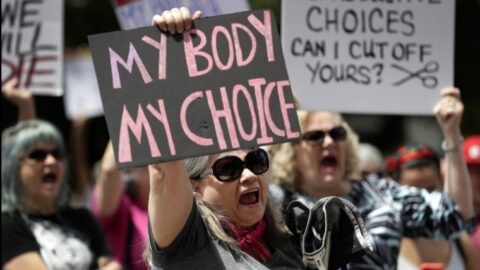

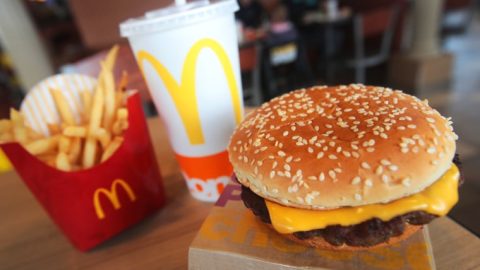
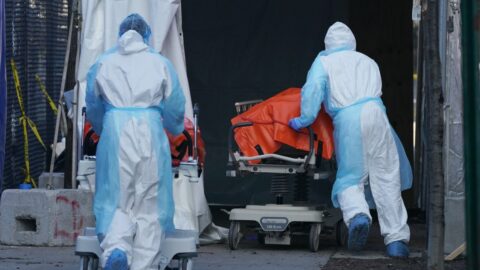
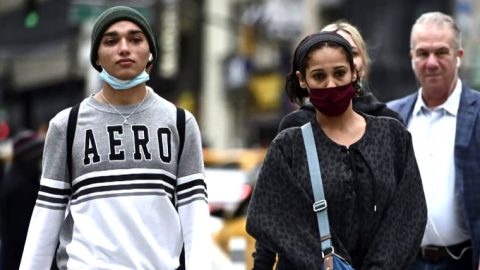
Recent Comments